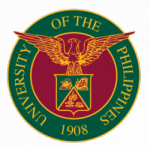This training course provides skills for anaerobic bacteriology, which includes media preparation, anaerobiosis, isolation, and identification of anaerobes.
Category: Education and Training
This refresher course is meant for graduates who want to take the licensure exam for the fourth time. Enrollees must show proof of completion before being allowed to take the fourth exam. This refresher course is based on Resolution No. 8, Series of 1998, promulgated on October 29, 1999 by Professional Regulation Commission.
This extension service is focused on exposing high school students and providing them an academic experience in the pharmaceutical chemistry setting. The guided activities include performing laboratory work in the current researches of faculty members, assisting in the development of lab experiments for pharmacy students, and analysis of data.
In response to the dynamic regulations imposed to drugs, cosmetics, and medical devices, the Department of Industrial Pharmacy added training sessions on Quality Risk Management, Risk Management Planning, and Quality Metrics. A series of lectures and workshops, this short course aims to help participants develop plans to monitor pharmaceutical systems and processes by identifying potential risks, their potential impact to products, and propose corrective and preventive actions if the need arises. These efforts will drive continuous improvements in the pharmaceutical industry, hospital and community pharmacies.
This course aims to develop dysphagia specialists among speech pathologists and other health professionals. It focuses on comparative physiology of normal and non-normal swallow in the pediatric and adult populations, as well as the multidisciplinary team approach to dysphagia.
The Postgraduate Training Course in Diagnostic Mycology is an annual professional training or course offering of the department. The course has been offered since the 1980s to dermatology residents, with participation of some medical technologists. Since 2016, the PAPSHPI, Inc. has also reached out to the Department requesting for this training course to be conducted among their members. The course is lecture- based, covering different types of fungal infections, fungal agents, diagnosis, and treatment. It also provides for hands-on laboratory work-up of fungal agents and microscopic demonstrations.
This certificate course aims to develop augmentative and alternative communication (AAC) specialists in the field of speech-language pathology in the Philippines by developing the participants’ knowledge and skills in AAC assessment and intervention.
In the Philippines and elsewhere, health care organizations find themselves awash with policies regulating hospitals and other health facilities, as well as payers. There are also rules and standard operating procedures within organizations that are designed to guide behavior within the organization. However, a common challenge is ensuring effective implementation of these policies.
The course is specially designed to help managers, leaders, administrators, community health workers, government or non- government employees, trainers, and others who are interested in understanding stress and its close relationship to psychological or even mental health.
This course is designed to provide health managers, administrators, health care providers, human resource personnel, teachers, and other health advocates the basic concepts, principles, and practical skills in strategic management and planning. It intends to highlight the participant’s skills in strategic analysis, particularly the planning aspect of strategic management.

